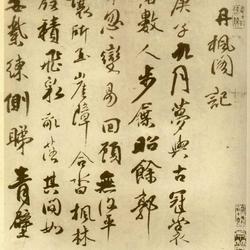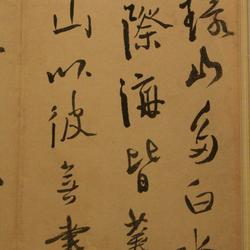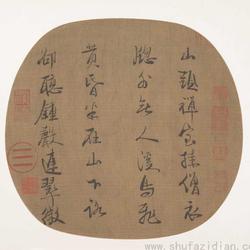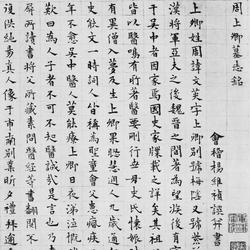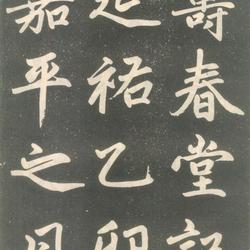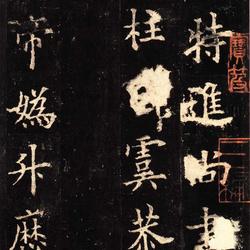Fang Xiaoru (1357-1402), a native of Ninghai, was a minister, scholar, writer, essayist, and thinker of the Ming Dynasty. His courtesy name was Xizhi, and the second character was Xigu, and his nickname was Xunzhi. He once named his study "Xunzhi" because of this. His hometown used to belong to Fengcheng City, so he was called "Mr. Fengcheng"; and because when he was a professor in Hanzhong Mansion, King Xian of Shu named his study place "Zhengxue", so he was also called "Mr. Zhengxue". Later, he refused because of his refusal. In order to launch the "Battle of Jingnan", Zhu Di, the king of Yan, drafted the edict to ascend the throne, which implicated more than 870 of his relatives, friends and students in all being killed, making him the only person in Chinese history to be "executed" by the "Ten Tribes". During the reign of King Fu, he was given the posthumous title "Wenzheng". He is the author of "Xun Zhi Zhai Collection", "Hou Cheng Collection" and "Xi Gu Tang Manuscript". There is a biography in Volume 141 of "History of the Ming Dynasty".
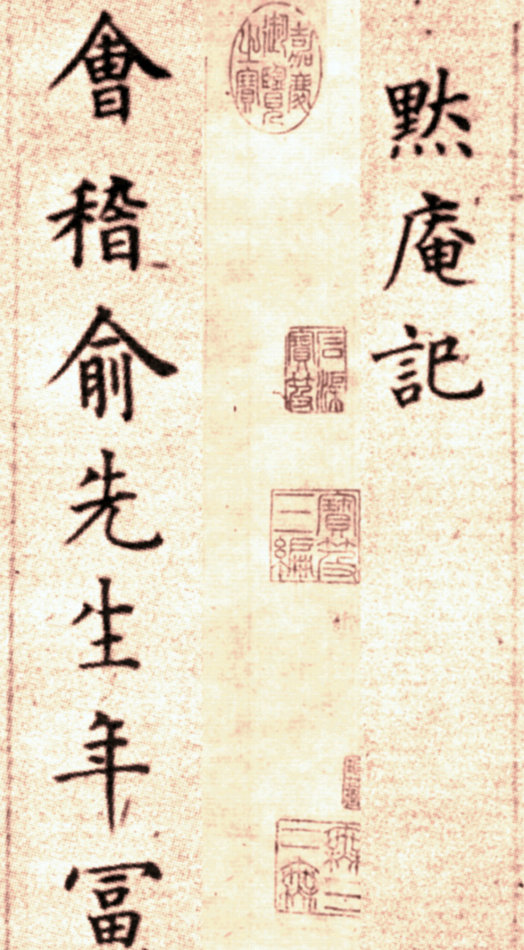
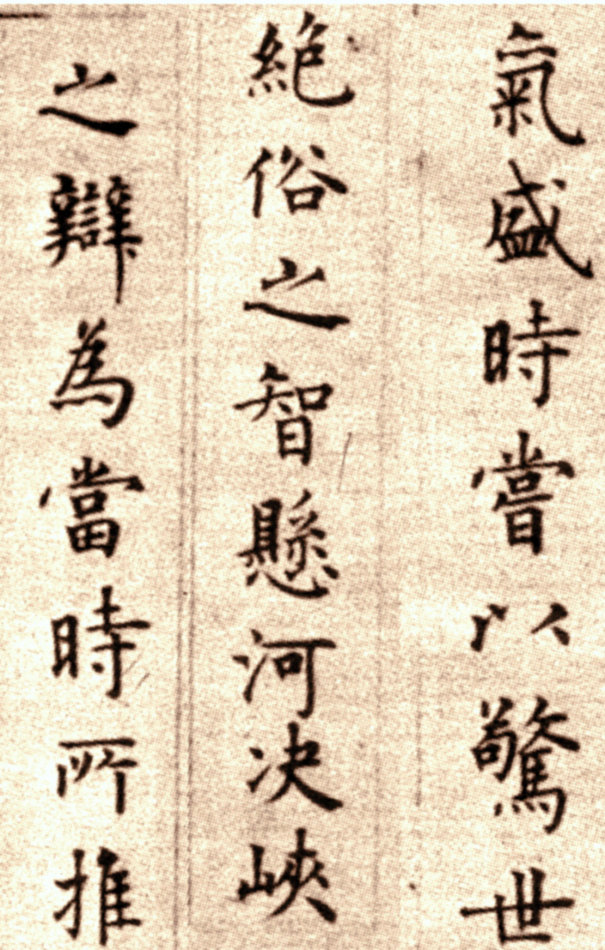
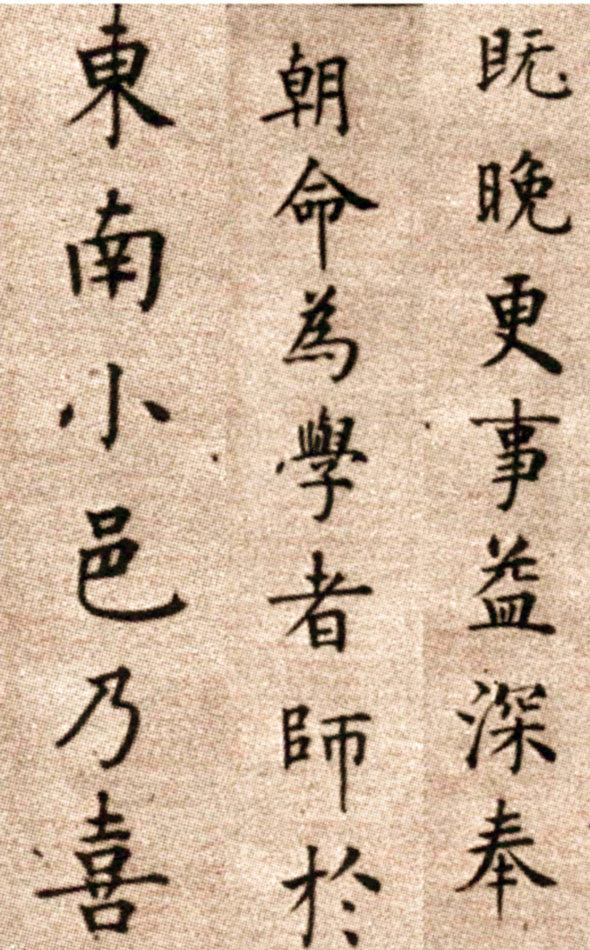
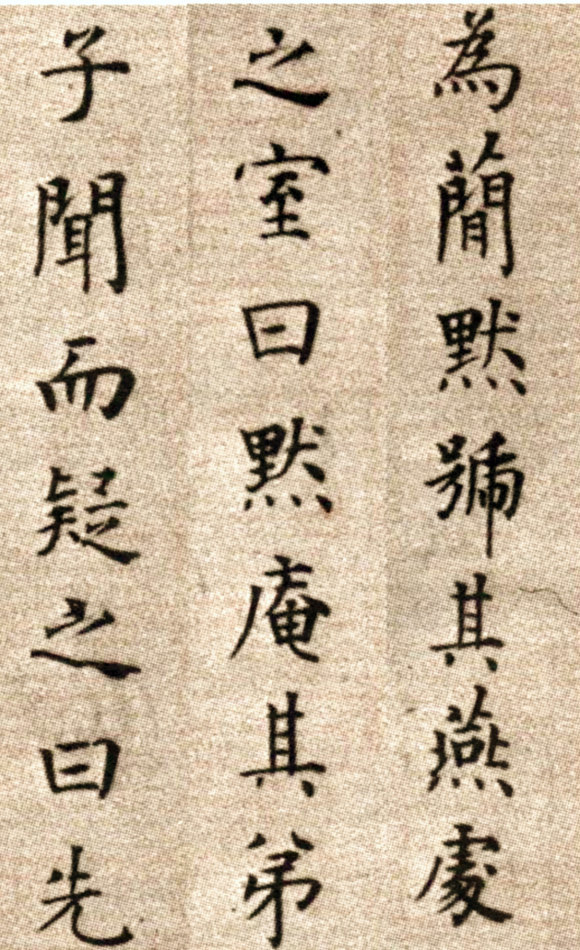
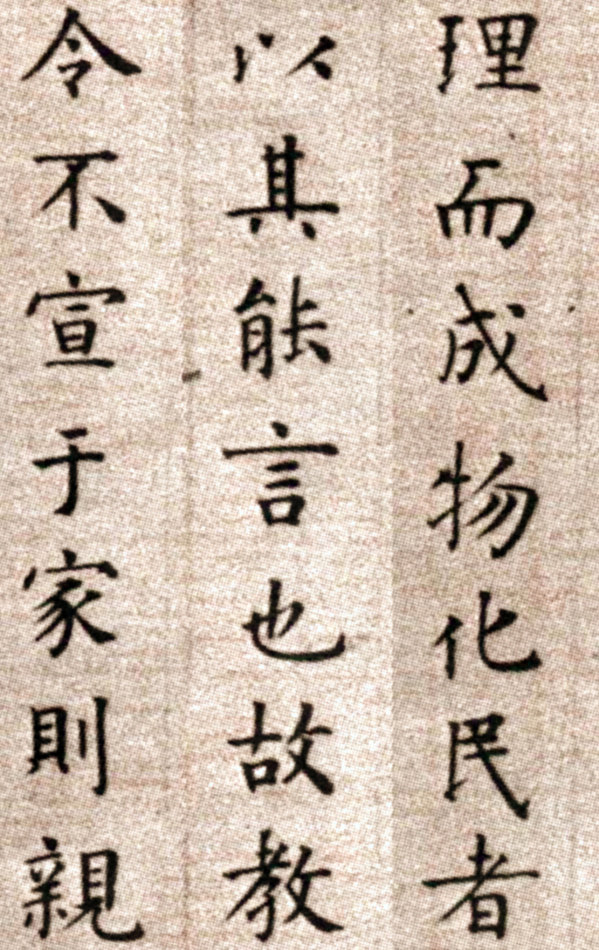

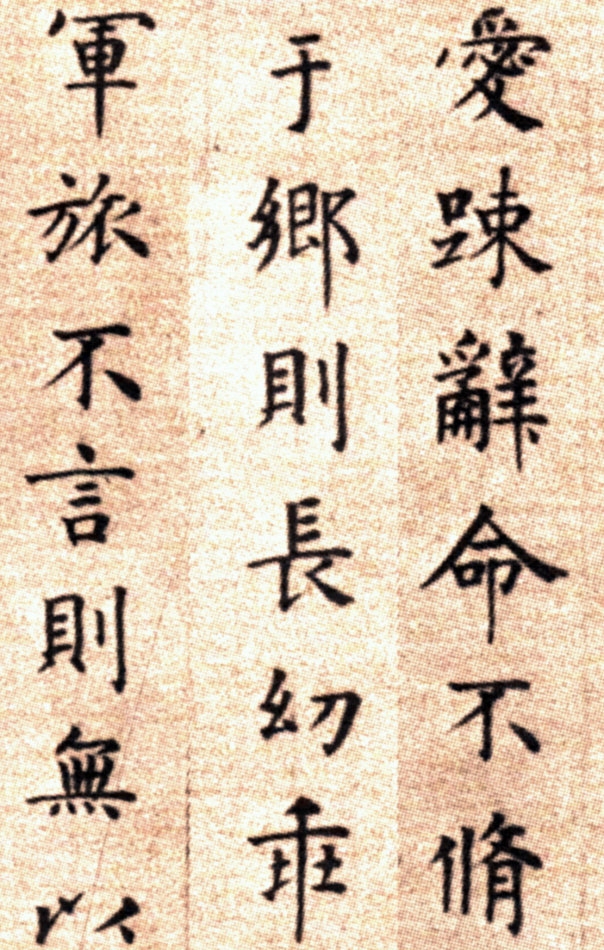
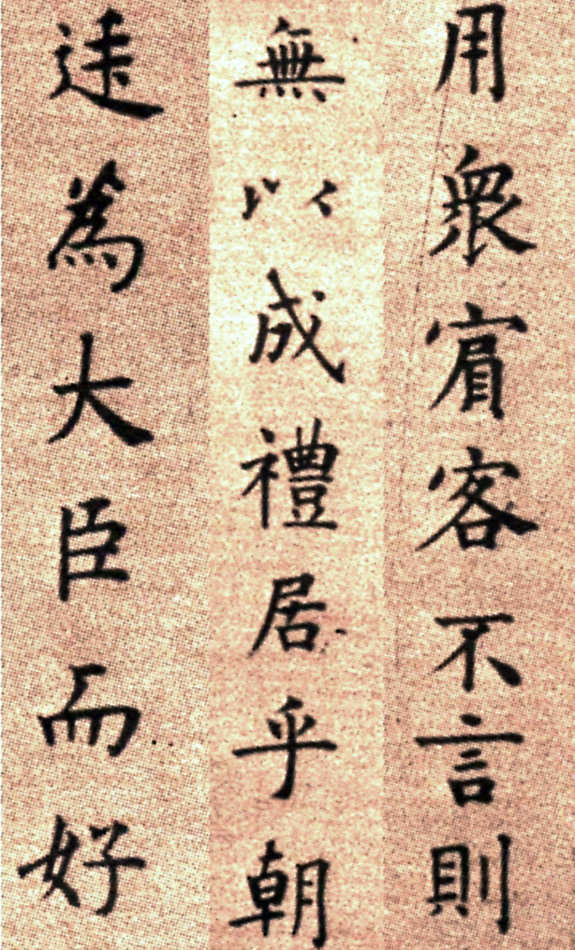
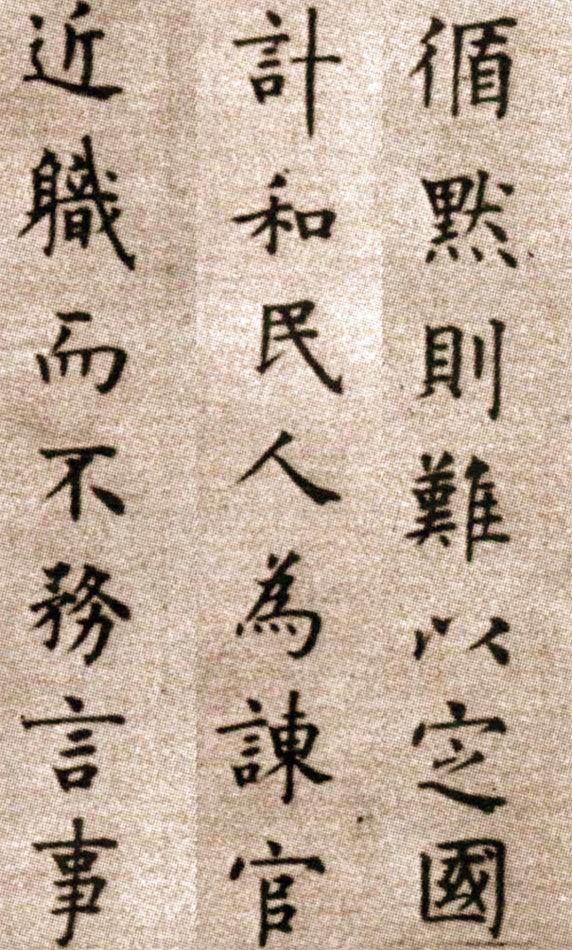
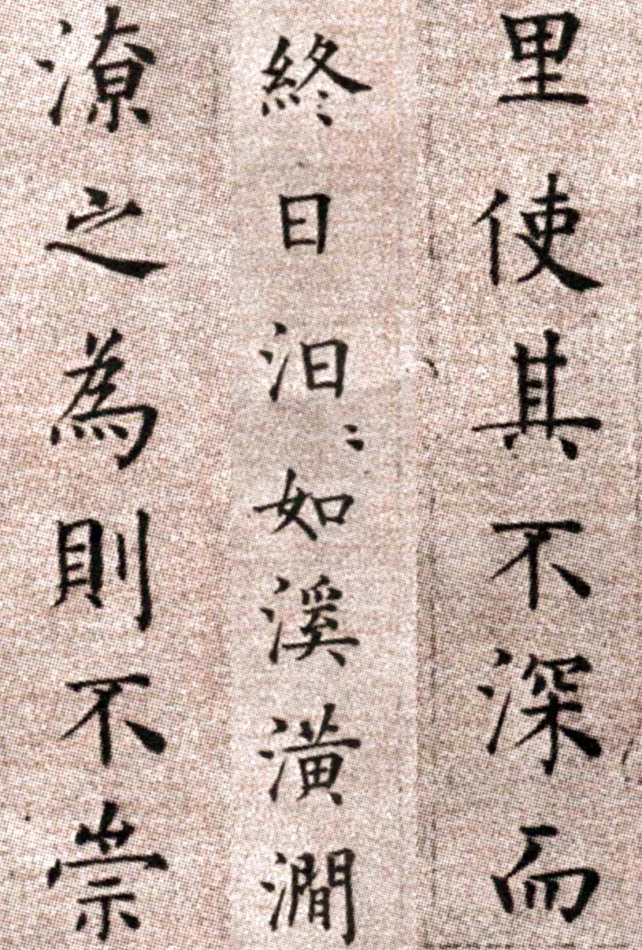
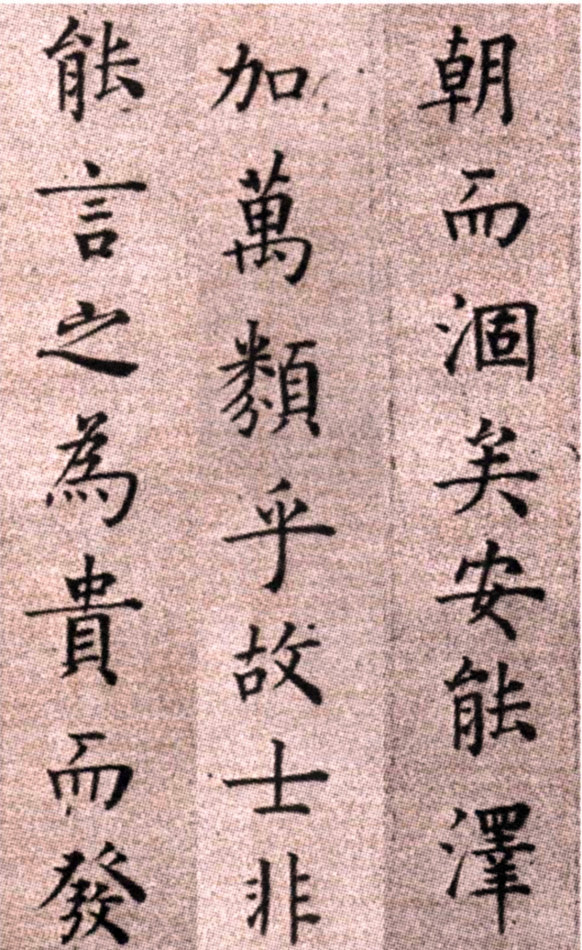
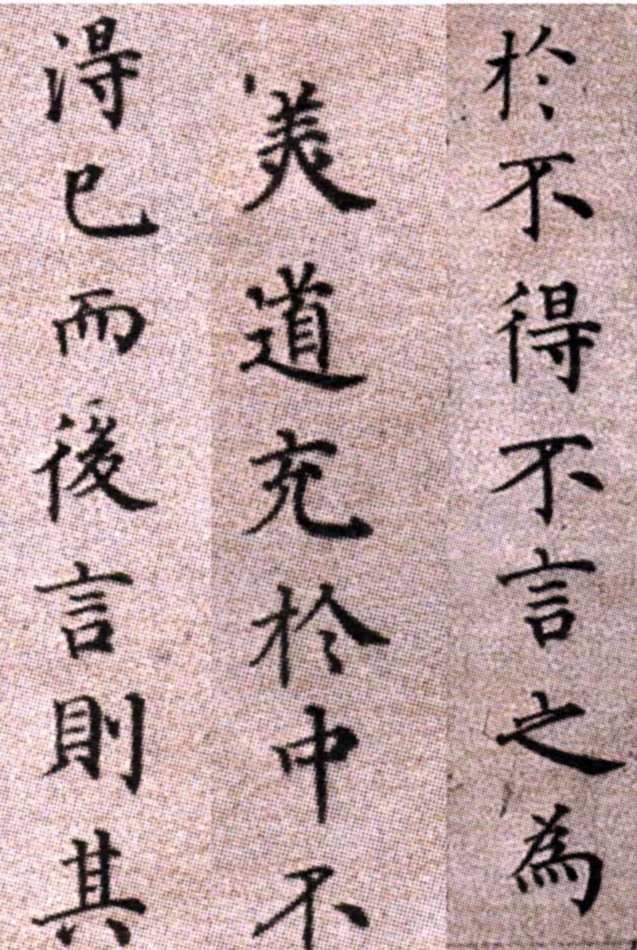
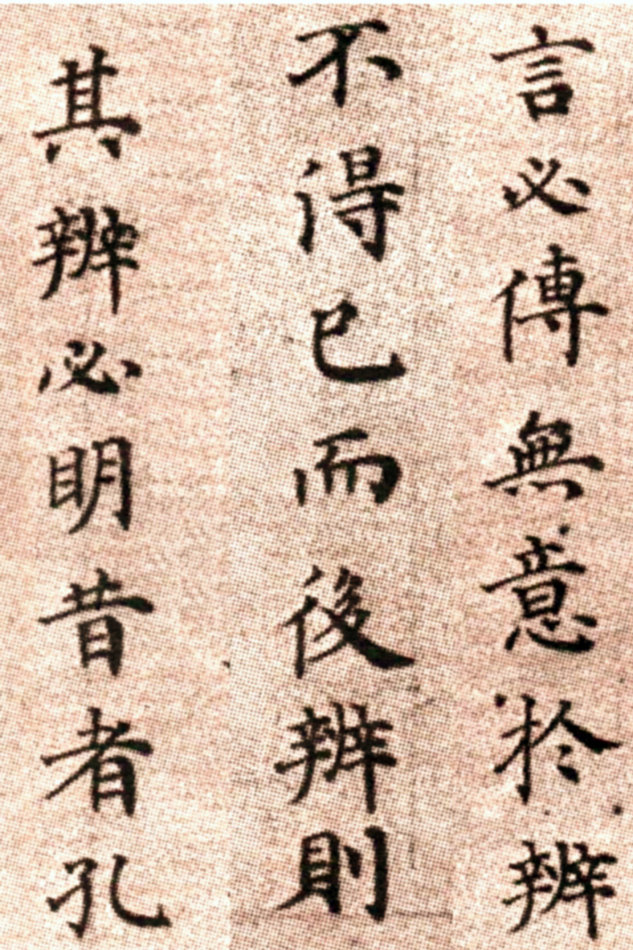
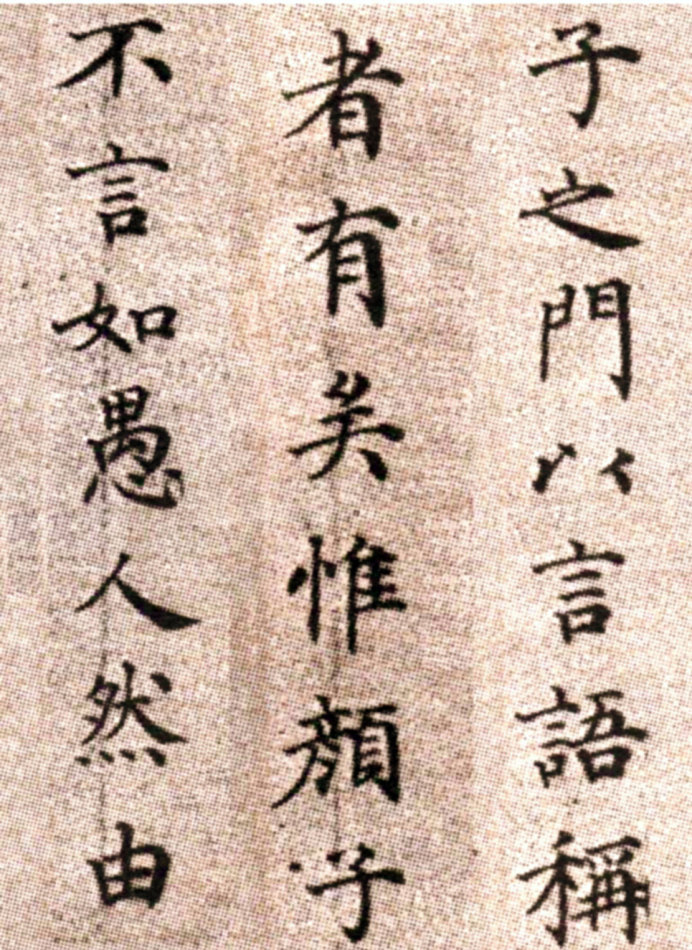
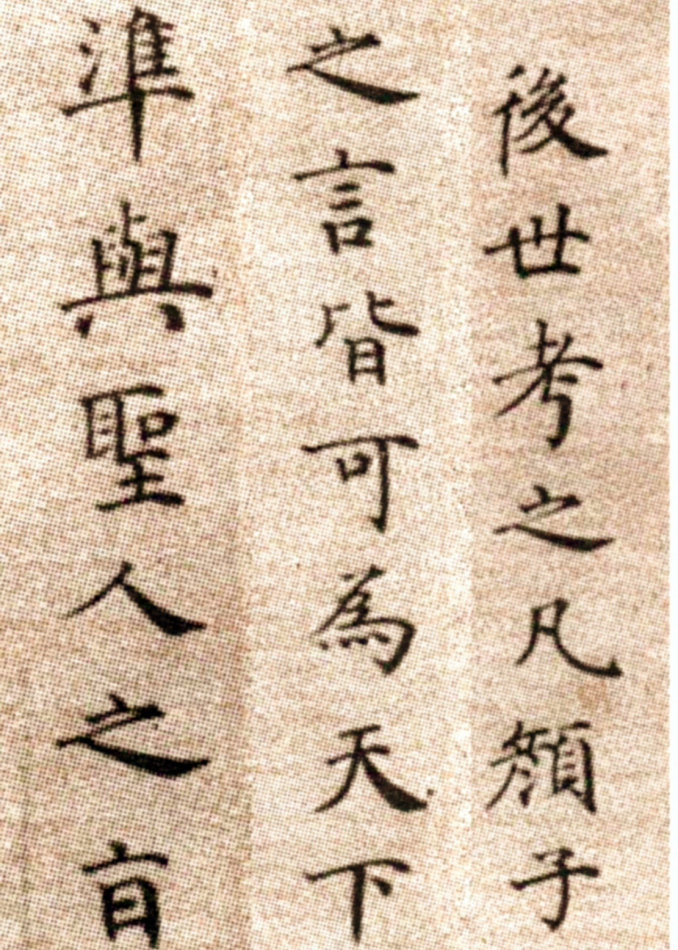
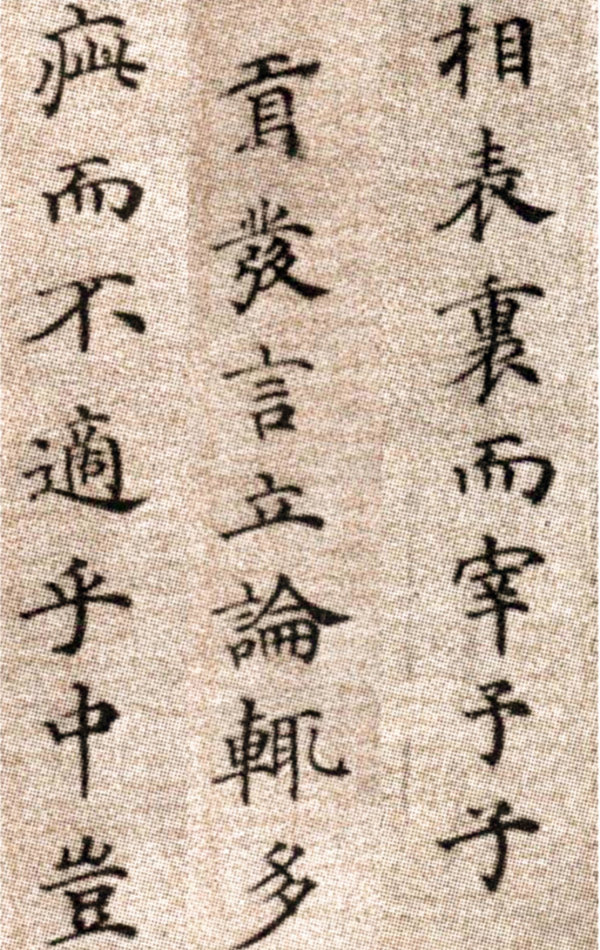
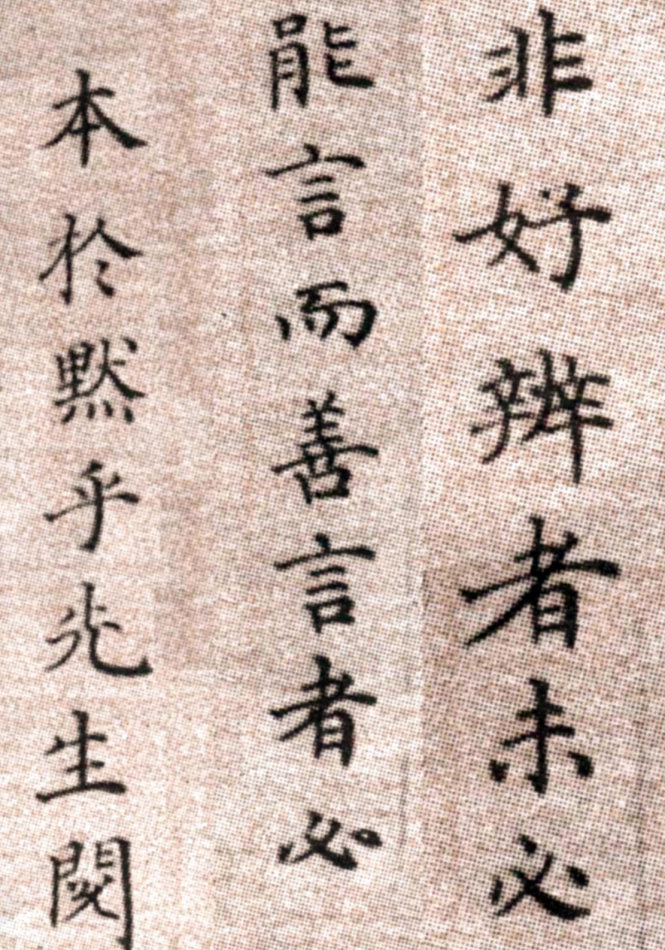
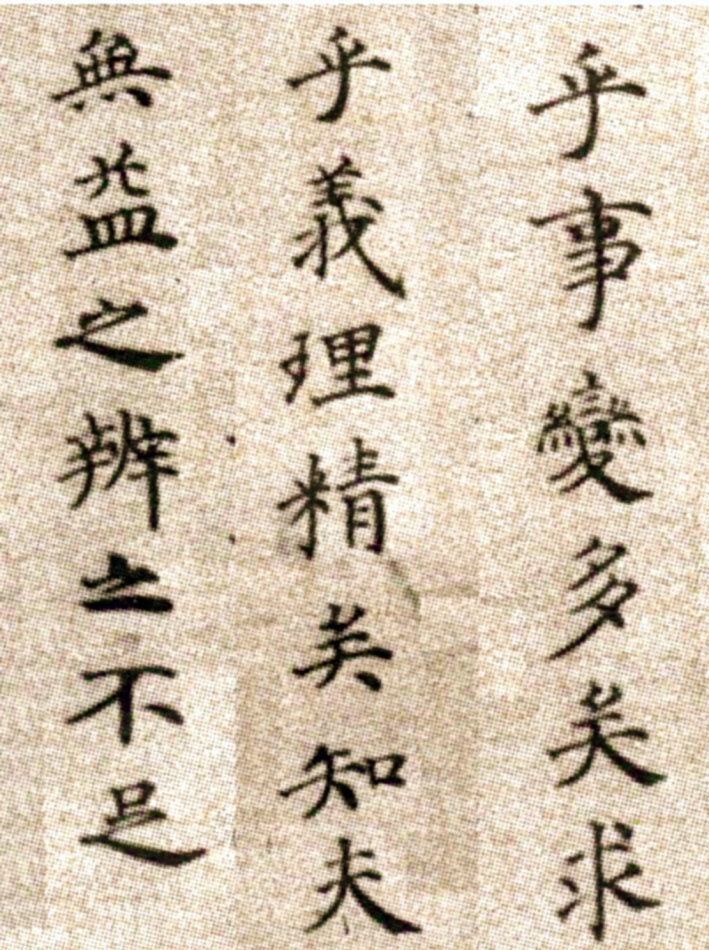
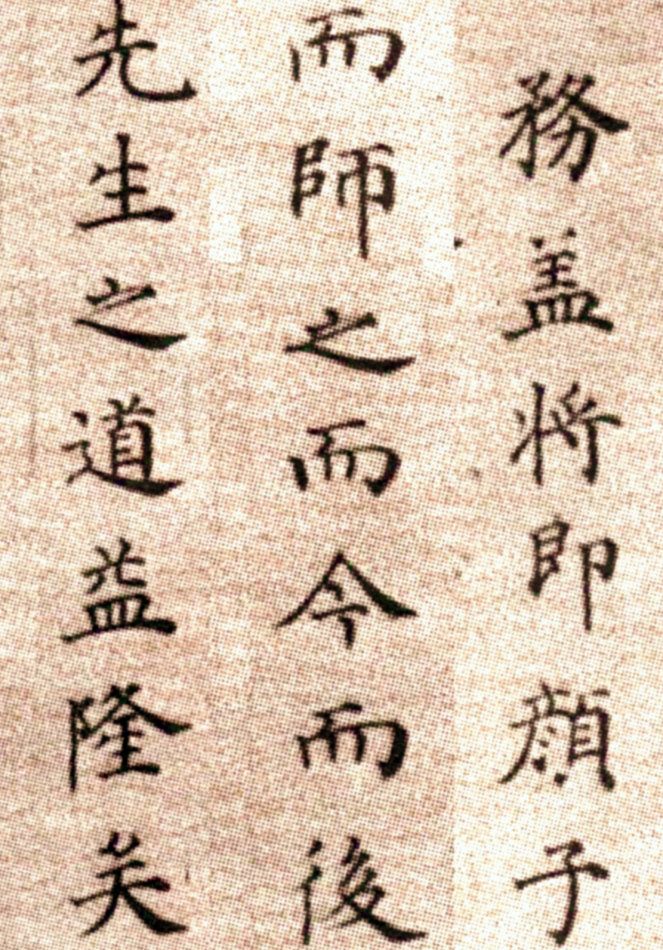
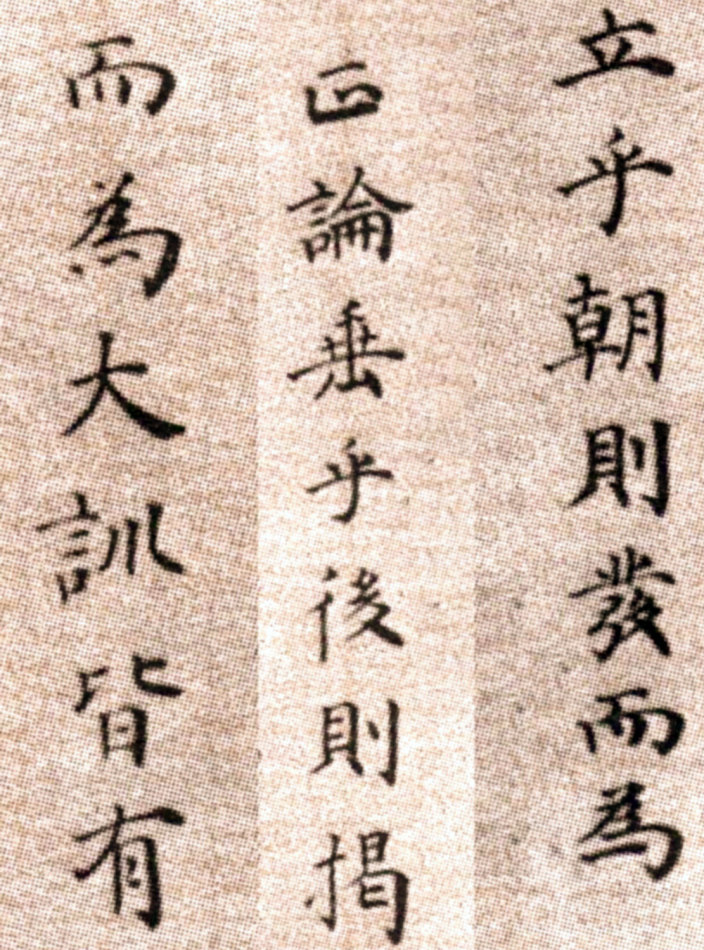
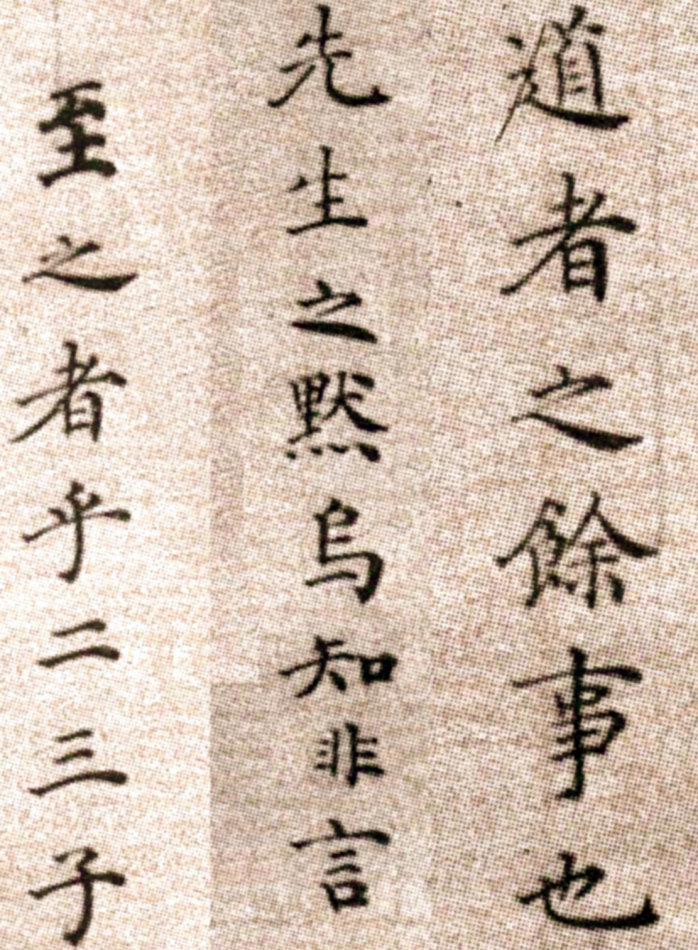
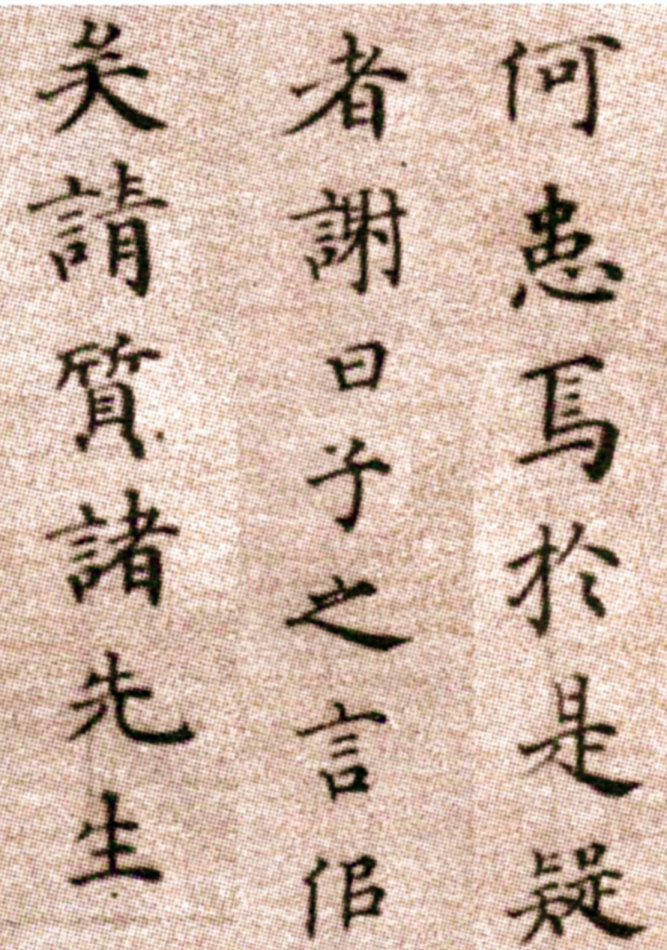
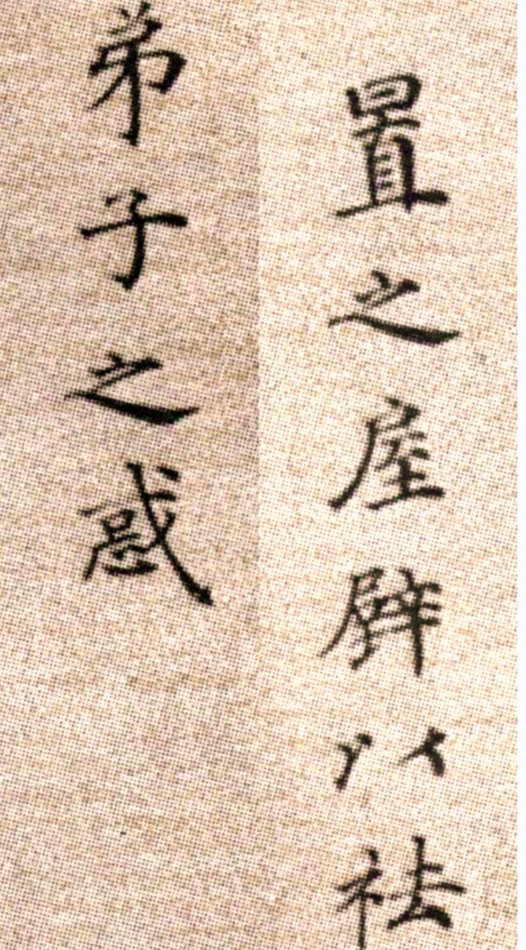
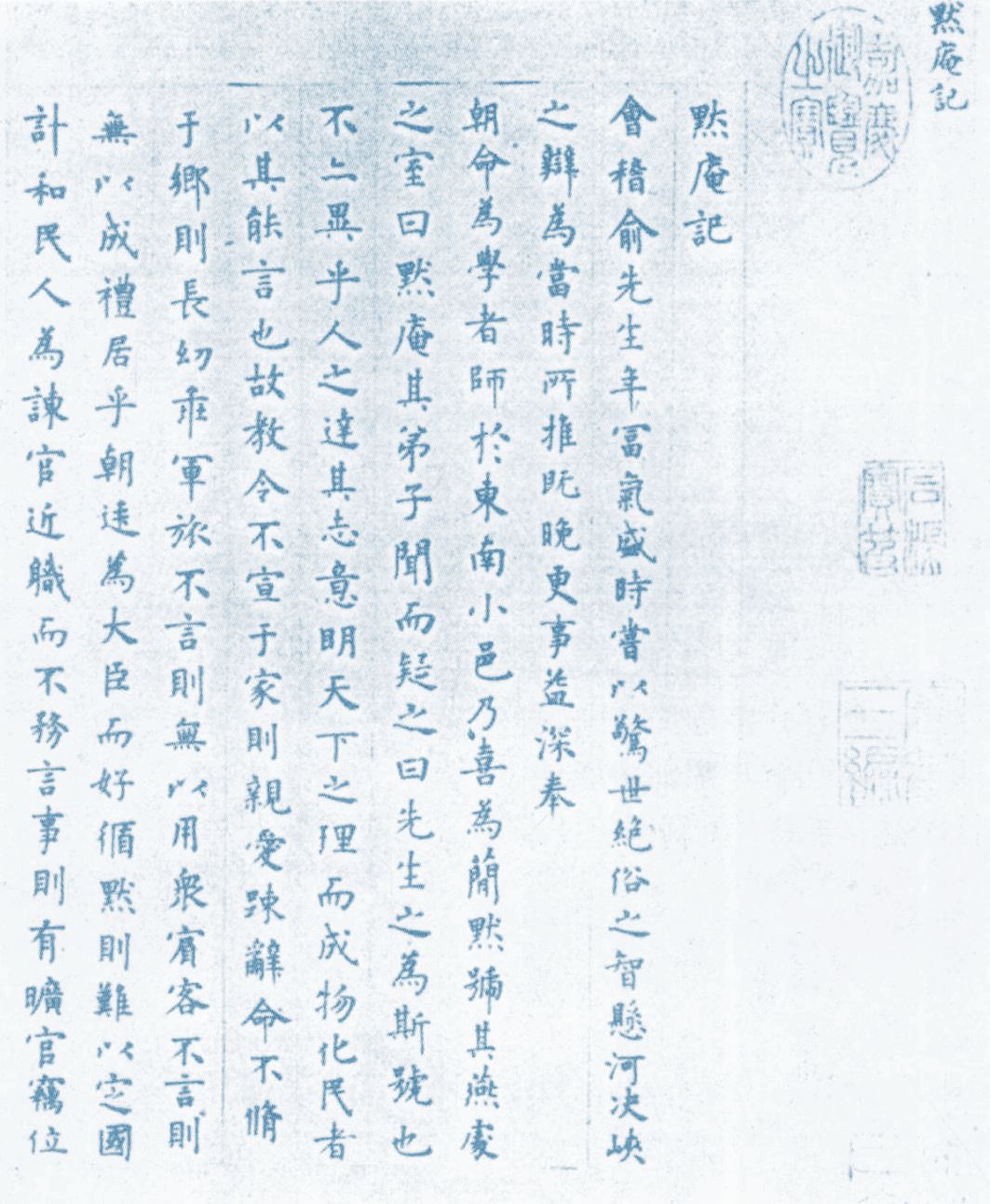
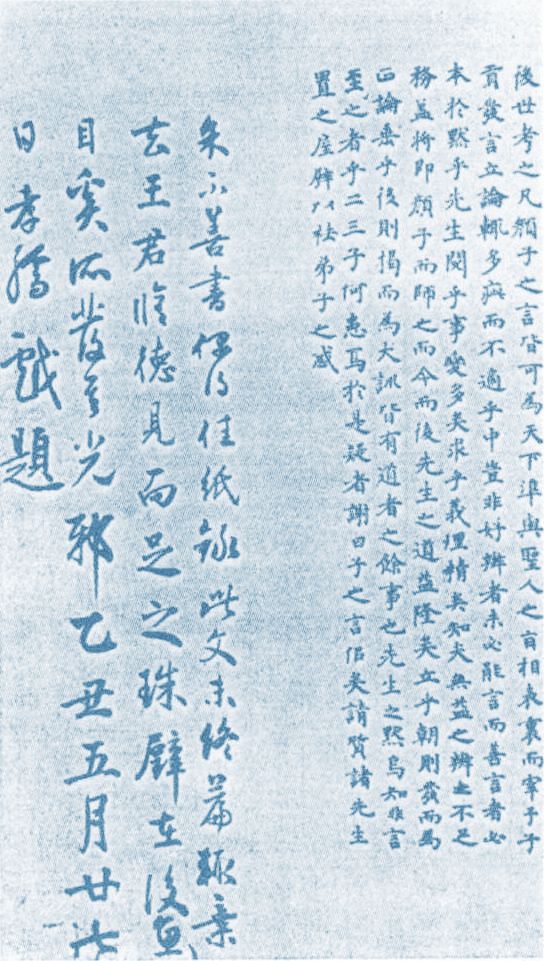
"Mo'an Ji" written by Fang Xiaoru, regular script, paper, 30.6cm in length and 56.3cm in width.Collection of the National Palace Museum, Taipei
Fang Xiaoru's "Mo'an Ji"Small letters. Where thirty-two lines. The number of words per line varies. A total of six hundred and thirty-four words. 30.6×56.3cm. This painting is recorded in the Third Collection of Shiqu Baoji. This is the first volume of "Records of Paintings and Calligraphy in the Forbidden City". Collection of the National Palace Museum, Taipei. Published in Taiwan's "Complete Collection of Forbidden City Dharma Books of the Past Dynasties" (5).
When Zhu Di led his army from Peking, Yao Guangxiao entrusted Fang Xiaoru to Zhu Di and said, "When Nanjing is captured, he will not surrender. I hope he will not be killed. If Fang Xiaoru is killed, the seeds of reading in the world will be extinct." Zhu Di nodded. promise.
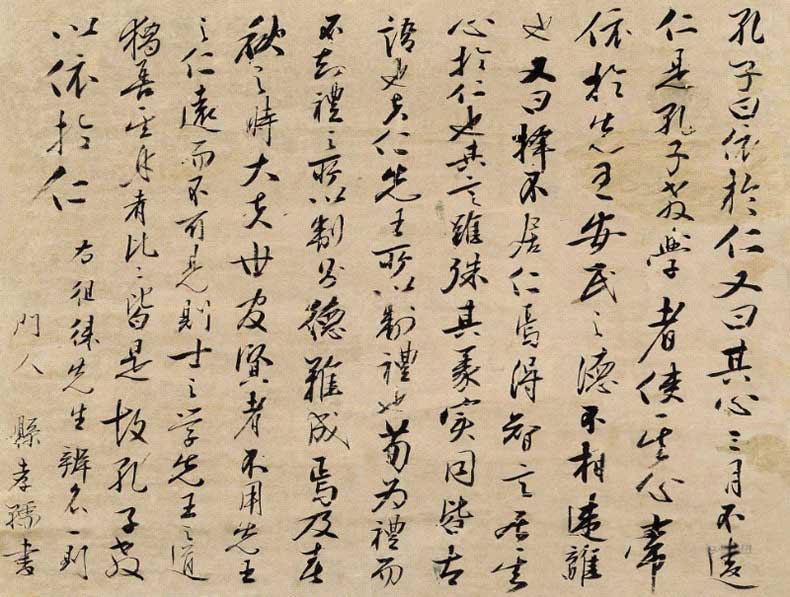
Fang Xiaoru's "Stone Introduction" was once collected by a famous Japanese collector.
When Zhu Di asked him to draft several edicts, Fang Xiaoru threw his pen to the ground, cried and cursed: "If you die, you will die. I will never draft edicts." Zhu Di became angry and ordered Fang Xiaoru's car to be broken into pieces in the market.

Seven character poem in regular script
Fang Xiaoru died generously and said in his final words: "God has sent down wars and sorrows. Who knows the reasons. The evil ministers got their wish, seeking to gain control of the country and playing tricks. The loyal ministers were angry and resentful, and their blood and tears flowed. "To bury you with blood and tears, or to have some other aspirations. The wailing lamentation is probably not my complaint." He was forty-six years old at the time.
Other calligraphy appreciation
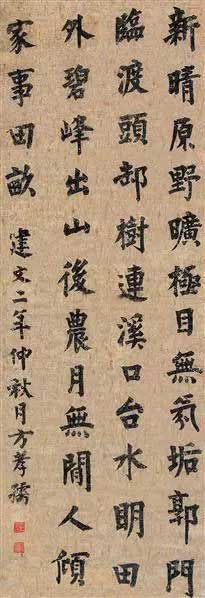
calligraphy lenses
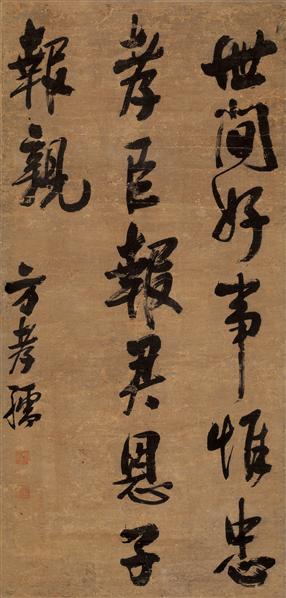
calligraphy vertical scroll ink on paper
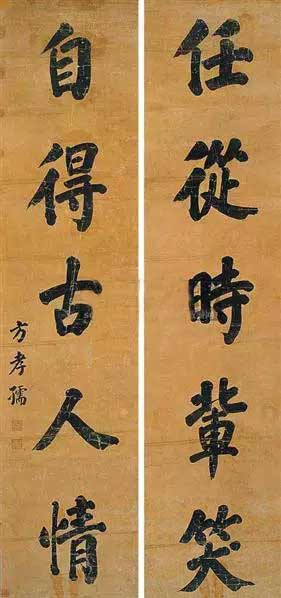
Calligraphy couplet, vertical scroll, ink on paper
Historical evaluation:
Zhu Yuanzhang: This Zhuangshi should only be as talented as he is old.
Yao Guangxiao: Killing filial children will eliminate the seeds of learning in the world.
Zhu Gaochi: If you are filial to your children, you will be a loyal minister, and you will obey the imperial edict and be lenient.
Li Zhi: Xiaoru has been extremely alert since he was a child, with piercing eyes, and he has been reading a lot every day. Because of Wenxiong's deep and mellow character, the locals call him Xiao Hanzi.
Qian Shisheng: The execution of the ten clans of filial piety children was done by provoking them. The more provocative they become, the more they kill, and the more they kill, the more provocative they become. As for the broken tongues and broken bones, Zhan Zong burned the tomb and ignored it.
Emperor Qianlong: At that time, Yongle was a minister of the vassal, but he violated Shun's surrender and conspired to seize the country. Although Qi Tai, Huang Zicheng and others were rash and ill-advised, and Fang Xiao's Confucianism was far-reaching, they were not enough to assist the young master. However, they showed their master's desire to strengthen himself, which is understandable. When the general trend is over, they still recruit troops to save their lives and fight against them. Although they die in the Zhan clan, they will never come back and become a famous leader without any shame.
Zhang Tingyu: The success of an emperor is determined by heaven. Cheng Zu's control of the world was beyond human control. Qi, Huang, Fang, and Lian were all loyal to the country but lacked strategies to win. However, his loyalty and indignation are aroused, and he enjoys seeing the sword, saw, cauldron, and wok with joy. After a hundred generations, he is still majestic and alive. How can it be said that those who show no concern for national affairs and sacrifice themselves to thank themselves can be treated in the same way! From this point of view, there is no common conclusion about success or failure.
Cai Dongfan: Fang Xiaoru is a pedantic scholar. Looking at his plans for establishing a literary system, none of them are useful and none of them are successful. Even if he refuses the imperial edict, he is still a loyal minister. However, one death is enough to thank his old master. Why should he arouse the anger of the King of Yan and bring the barbarians to the ten tribes? What is the hatred among these ten tribes that they must all die together?
Hu Shi: ① Fang Xiaoru was a great person in the early Ming Dynasty. Outsiders often say that there are very few martyrs in China, or that there are very few people who die for their beliefs, but if you think about it carefully, this is not true. Our sage Confucius advocated "Kill oneself to achieve benevolence, and do not seek life to harm benevolence" 2,500 years ago. This is our tradition. In Chinese history, there were many people who had independent thoughts and personalities and were martyred. Fang Xiaoru was a person who sacrificed his life for his ideas, his beliefs, and his thoughts. After King Yan entered Nanjing, Fang Xiaoru was killed by ten tribesmen because he refused to draft the edict of accession to the throne. At that time, Yao Guangxiao once advised Ming Chengzu to leave a seed for scholars, but Ming Chengzu refused to listen, and finally he exterminated nine clans and ten clans. It is sinful to even leave a scrap of paper saying Fang Xiaoru. This was the political thought of Emperor Chengzu of the Ming Dynasty who wanted to destroy Fang Xiaoru. ②So in the next 200 years of the Ming Dynasty, there were no more political thinkers. Before the 14th century, our country's political thought was by no means inferior to that of Europe. However, why it has languished in the past 500 years is due to the tragedy of Fang Xiaoru's murder.

